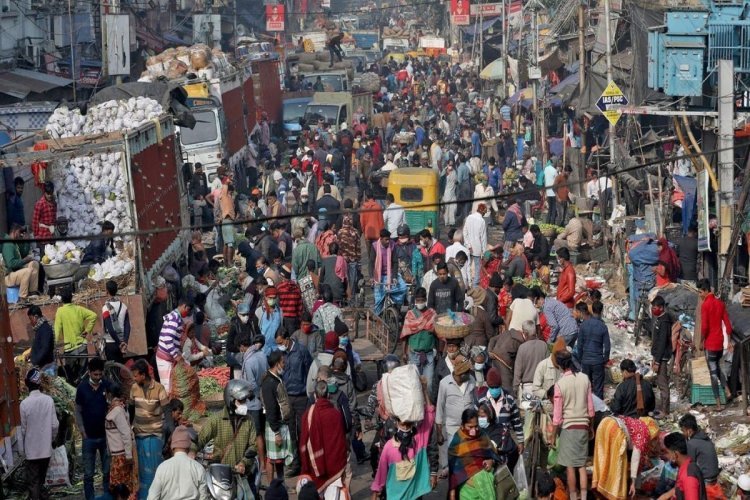May Day Special: Demographic dividend is now in India's favour
Labor Day 2023: Last week, the population of India exceeded the population of China. Even though it is not considered a special achievement in India, in the eyes of China, this achievement of India is shocking. There is a reason for this too. Due to China's strict population policy, the population of working people in China is now decreasing and the population of elderly people dependent on them is increasing.

Last week, the population of India exceeded the population of China. Even though it is not considered a special achievement in India, in the eyes of China, this achievement of India is shocking. There is a reason for this too. Due to China's strict population policy, the population of working people in China is now decreasing and the population of elderly people dependent on them is increasing. Not surprisingly, the spokesperson of the Chinese Foreign Ministry, when asked questions on this issue, said that the benefit of the population does not come only from increasing the population, but for this, there should also be quality in that population. The spokesperson said that our population dividend is not over yet and our talent dividend is also flourishing. It is clear from this statement that India's demographic dividend is now stinging in the eyes of China. There is a reason for this too.
Today, every fifth person in the world below the age of 25 lives in India and 47 per cent of India's population is below the age of 25. This means that 650 million people in India's population are in the age group of less than 25 years. It is clear that this is the youth who was born in post-liberalisation India. Two-thirds of the population in India now consists of those who were born after liberalisation. The average age of the population of India today is 28 years.
This means that India will have the world's largest working-age population as well as the world's largest youth consumer segment, which has the potential to change the course and direction of any economy.
In the past three years, China's working population has decreased by more than 40 million. The United Nations estimates that by 2040, the number of people 65 or older in China will exceed those under 25. That means the dependency ratio in China will reach a worrying level.
In China, by 2050, the proportion of those over 65 could reach 30% of the population. That is, the proportion of working people will decrease and the proportion of those dependent on them will increase. This is what is troubling China.
While the proportion of the working population in India is increasing and the proportion of the population dependent on them is increasing, it is not worrying at all.
India can take advantage of this demographic dividend only if India can generate enough employment for its young working population. According to the Center for Monitoring Indian Economy, only 40% of India's working-age population works or wants to work.
This is because only 10% of working-age women in India were participating in the labour force, compared to 69% in China.
In population management, India has done what no country has been able to do till now. Despite India's population has increased by more than a billion people since independence, there is talk of a population being used as a strength rather than any widespread concern about India's population.
Instead of demographic disaster, there is talk of demographic dividend. Not only this, the population in India has definitely increased in the last 75 years, but India has also succeeded in curbing the increase in population.
That too despite worrying about poverty and limited education and resources, adopting democratic means. Apart from India, no country in the world could do this. In 17 states of India, the rate of population growth has reached the replacement level.
India's population surpassing that of China is being seen as a possibility all over the world. The UN has also welcomed it. John Wilmoth, director of the population section in the UN's Department of Economic and Social Affairs, says that being the world's most populous country, India now became a natural contender for a permanent seat in the Security Council.
Significantly, in 1971, instead of Taiwan, China was given a permanent seat on the Security Council because China's population was more than Taiwan's.










